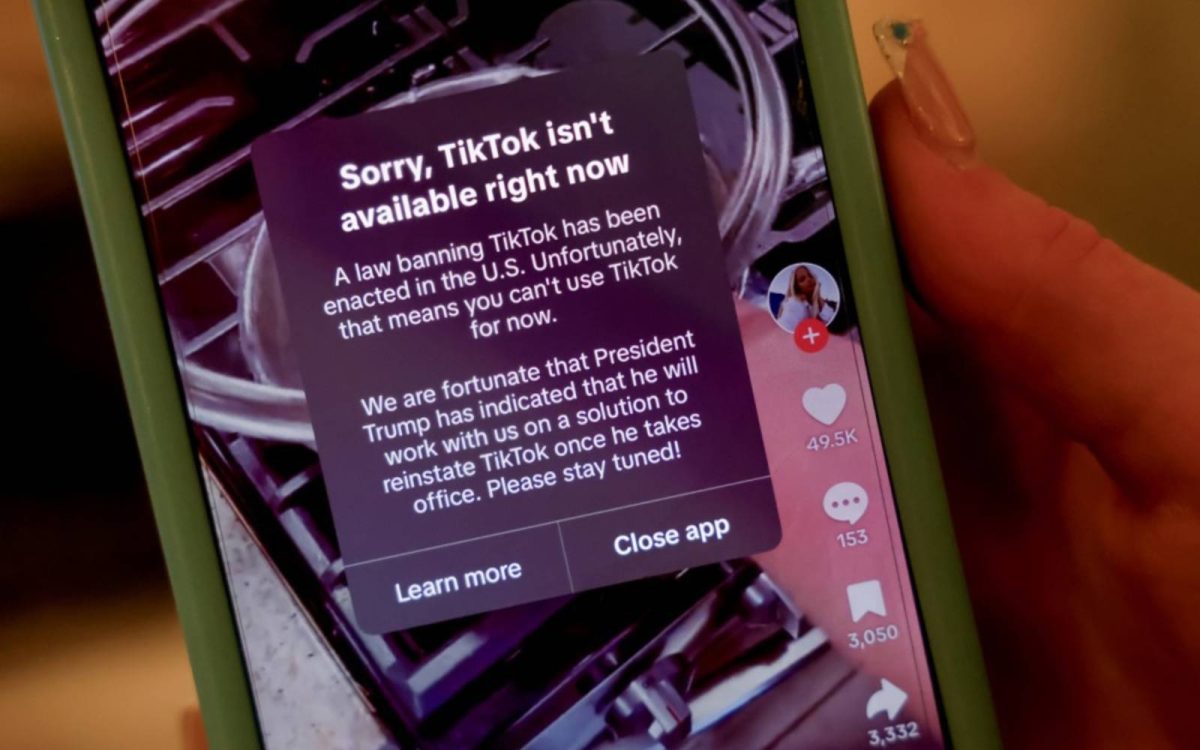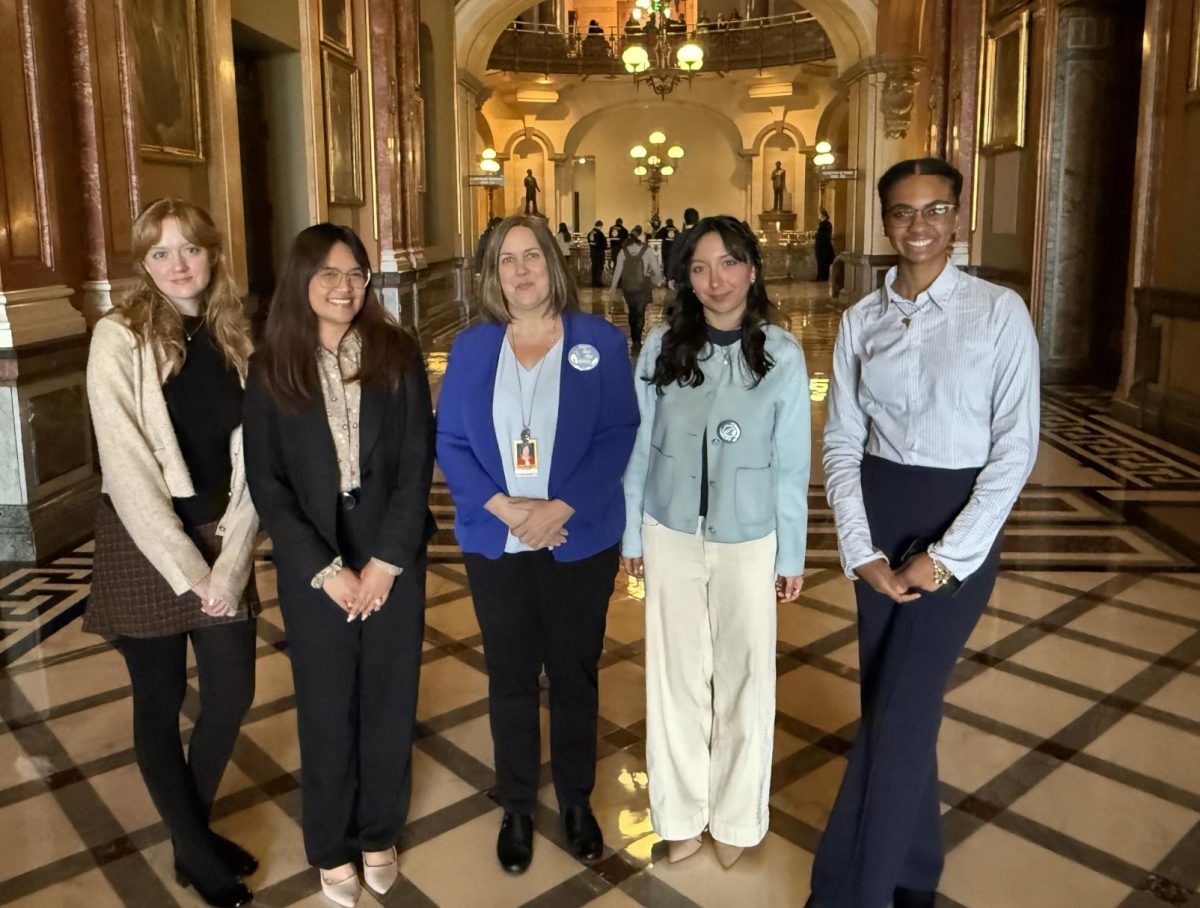TikTok’s Jan. 19 ban and its immediate revival a day later, has left students wondering how much time is on the clock for this popular social media site.
CLC students recently shared their take on this method of communication and news.
Jennifer, an accounting major, recounts the suddenness of the ban that occurred.
“I didn’t actually think it was banned,” Jennifer said. “When it shut down initially and you saw the messages, it was clear it was a behind the scenes kind of thing, so I was just over it.”
Carlos, a mechanical engineering major, responded in a different tone.
“It’s a sad thing, just a thing we had to live through,” Carlos said. “If it gets banned, it gets banned, and we move on.”
Growing anticipation of the TikTok ban aroused discussions of what social media site would serve as an alternative for people to use. Many of the people migrating to other apps found the social media app Rednote, a Chinese-owned app with similar features to TikTok. The move was controversial due to Rednote’s roots in the Chinese government, the same reason that TikTok was being banned.
Dissatisfied with the way the government was handling the TikTok situation, some CLC students turned to Rednote as a form of protest.
“I downloaded it to see what it was,” Jennifer said. “It was kind of retaliation. It was a little protest within itself, so I understood it, and I was supporting it.”
As Rednote became a popular alternative, many grew weary of the potential suppression of expression that came with using a social media app subject to Chinese laws in a way that TikTok, as a private company, isn’t.
Psychology major Luiz Barahona argued caution to those who moved to Rednote as a form of protest. When it comes to the Chinese social media app, it’s more “restrictive” compared to how people are accustomed to using social media in the United States.
Soon after TikTok was reinstated, a message thanking the Trump administration showed up on everyone’s screens while opening the app. Jennifer understood that this message would portray the Trump administration in a better light, though during Trump’s first term, he pursued a ban.
“I kind of figured that’s what was gonna happen,” Jennifer said. “I was not sad, but knew what the outcome was going to be, like people were going to say, ‘thanks to him, it’s back.’ But before it was even banned a few years ago, he was the one pushing for the ban. So it was like ‘Sure, let’s just go with that, he’s the one to fix it.’”
Barahona gave his insight into a different perspective of what someone who isn’t invested in politics would think.
“If I didn’t know anything about politics whatsoever and was an avid social media goer, I would see Trump in a positive light. If I was avidly on TikTok and the new president said, or it was said that he helped reinstate it, it’d give me a positive view on them,” Barahona said.
Answers varied on whether the ban was an appropriate course of action.
Matt, studying medical imaging, said while he himself doesn’t use TikTok, he understands that if there is a national security risk regarding user data, a ban isn’t off the books.
Barahona said TikTok isn’t a threat because in the United States, other Chinese companies already exist, and its popularity made it into a “punching bag.”
“When it comes to games or social media apps, you’re going to find a lot of them that either their parent company or they are partially owned by the Chinese government,” Barahona said. “At that point, you would have to launch a social media application crusade against any Chinese app.”
National security concerns over the handling of U.S. user data became a growing trend throughout both the Trump and Biden administrations. The issue arose from TikTok’s parent company, Bytedance, having ties to the Chinese government.
When asked about the concerns over user data, answers typically stayed the same.
“No, I don’t think it was about data,”Jennifer said. ”If you go on a website, they ask you about cookies, and a lot of times you allow cookies not even thinking ‘Oh they’re gonna take my data.’”
“Everybody’s gonna wanna sell your data,” Carlos said. “There’s not much privacy in the internet world we live in.”
Donald Trump’s executive order delaying the TikTok ban will remain in effect until April 5.
When asked about what should happen to TikTok, students’ answers varied.
“At the end of the day, it should stay as it is,” Carlos said. “If they wanna sell it, go ahead, but it should stay as is.”
Matt said putting it under American hands isn’t the worst outcome as long as user data is secure.
“You should always stand on your toes whether everyone is against you or not,” Jennifer said. “If they do sell to the U.S., it won’t be the same.”







